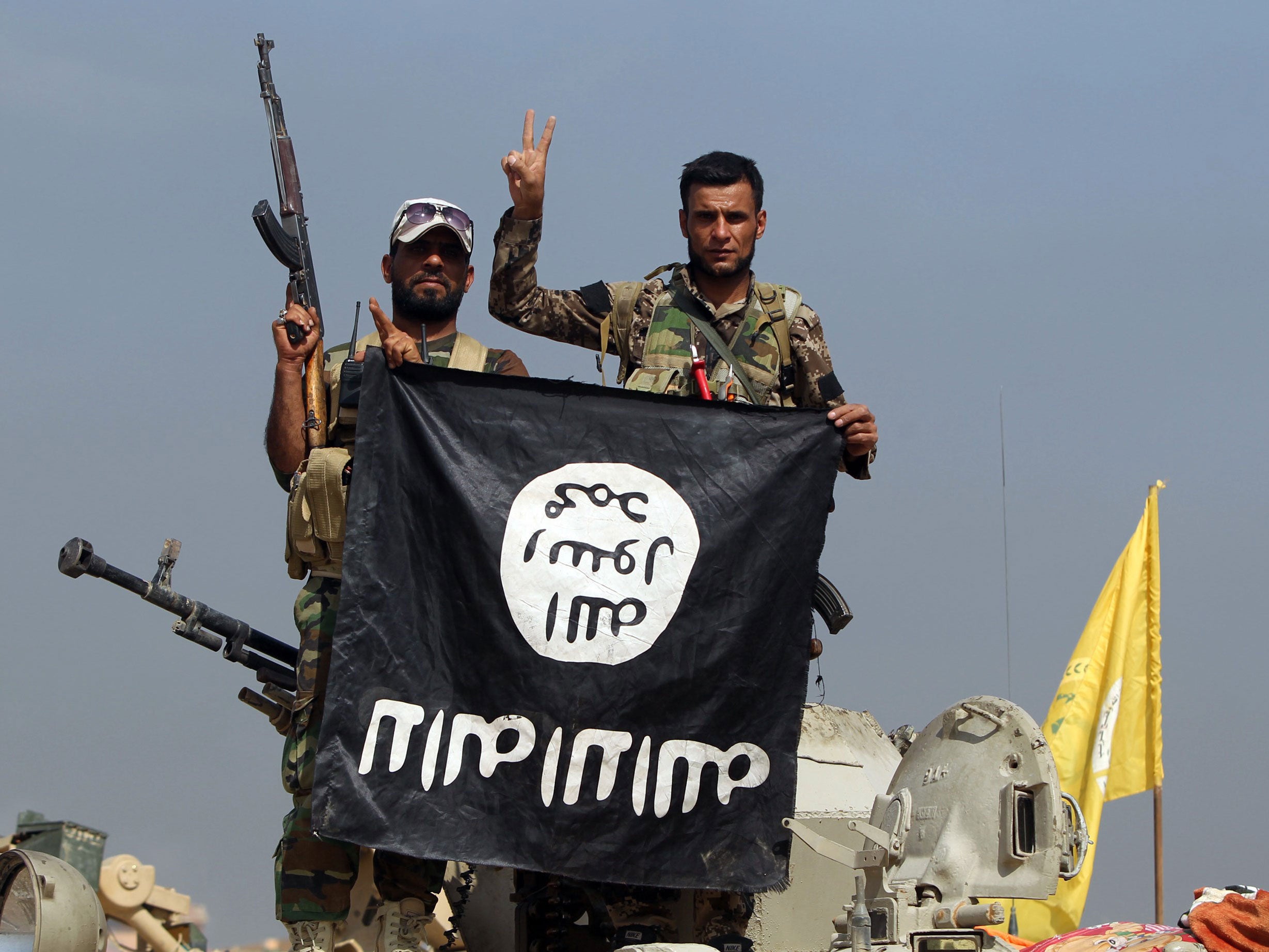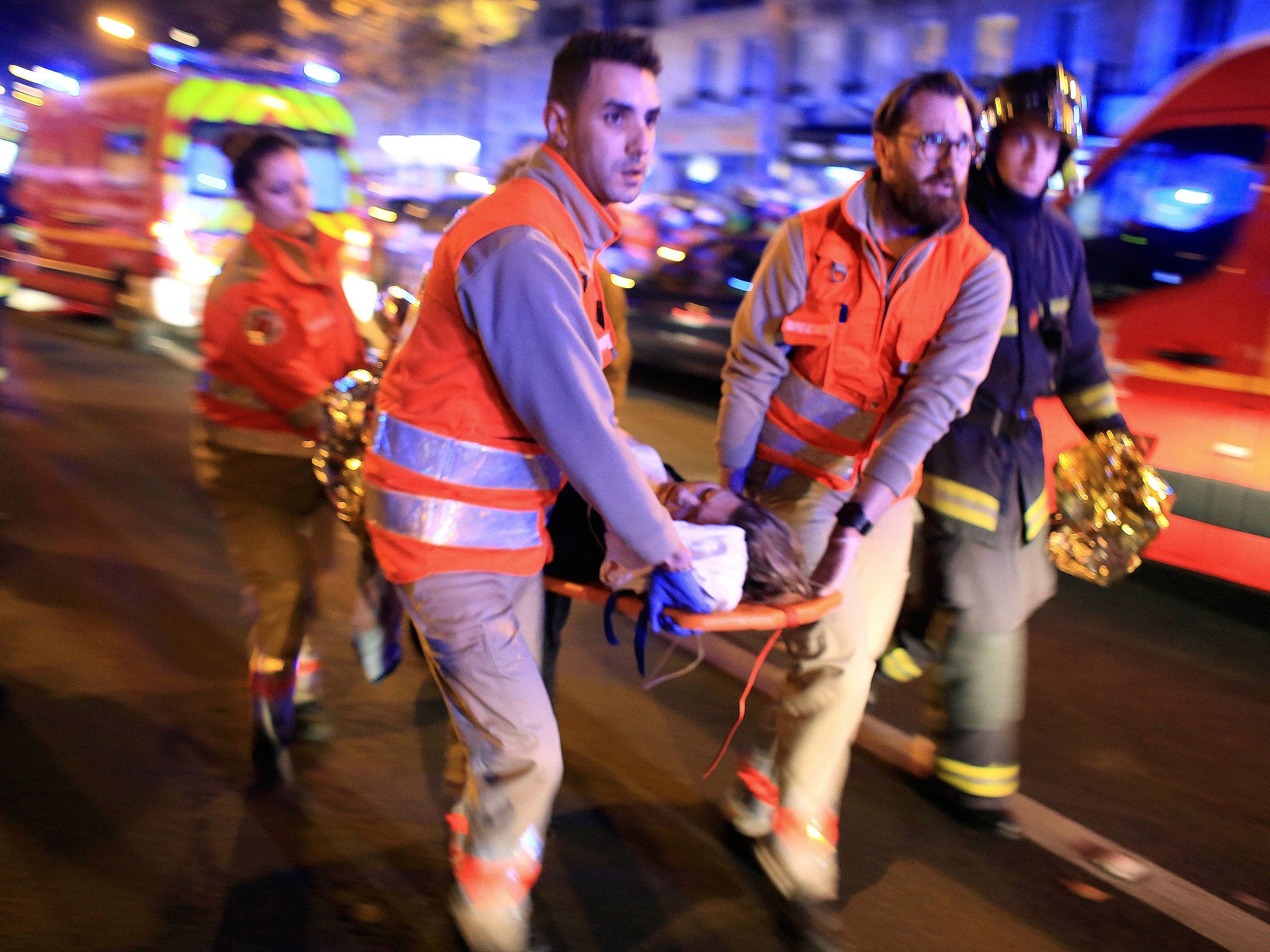Isis plot to direct new terror attacks in Europe uncovered after group loses last Syrian stronghold
Terrorist group has called on supporters around the world to launch attacks after losing territory in Syria

An Isis plan to direct new terror attacks in Europe has been uncovered after the group lost the last sliver of its former “caliphate” in Syria.
Documents on a hard drive, which was dropped by Isis jihadis killed in a desert battle, detail proposals for a “Bureau of Foreign Relations for the Department of Operations in Europe” to organise, arm and fund atrocities.
In a letter passed to The Sunday Times, a senior militant calling himself Abu Taher al-Tajiki told local Isis leaders he was in contact with “individuals who want to work in areas far away from the Islamic State”.
Requesting permission to set up the new “bureau”, he added: “Before they carry out the operations, they will send us the targets if the connection is secure. Otherwise, they do the operation. And by the will of Allah we will meet all of their needs, for those who want it.”
Other letters saw the same writer offer to use sleeper cells across Syria to assassinate targets named by Isis leaders, following a series of murders and bombings in the group’s former territories.
One document detailed the leadership structure of cells hidden in northeastern Syria, including bombmakers and fighters.
The documents said one planned meeting with Isis leader Abu Bakr al-Baghdadi had been delayed and it was unclear whether the proposals were ever presented to leaders, or if other copies existed.
The Syrian Democratic Forces (SDF) have vowed to fight sleeper cells, following several bombings targeting their fighters and international troops from the US-led coalition.
International security services have long predicted that Isis would seek attention and legitimacy through terror attacks after losing its former “caliphate” in Iraq and Syria.
Last week, an audio message from the group’s spokesman was released on propaganda channels urging supporters around the world to launch massacres in revenge for the New Zealand shooting that left 50 Muslims dead.
The foreign secretary warned that people “should not mistake the loss of territory by Isis for final defeat”.
“As they are driven underground, they are adopting insurgency tactics and forming covert networks,” Jeremy Hunt wrote in The Sunday Times.
“The survival of their murderous ideology does not depend on control of territory. They can still use the internet to raise funds and spread the propaganda that encouraged young people in Britain such as Shamima Begum with such terrible consequences.”
The deadliest Isis massacres seen in Europe, the November 2015 Paris attacks, were directed by the group’s leadership and carried out by a well-trained and armed cell who previously fought in Syria.
Other suspected Isis cells have been arrested in several countries including Germany, where groups of Iraqi and Syrian asylum seekers were found to be planning bombings.
A former Isis militant interviewed by The Independent said that shortly after arriving in Syria in 2015, members of the group’s secret service asked him whether he would be prepared to carry out atrocities in his home country of Germany.
“He was speaking openly about the situation, saying that they have loads of people living in European countries and waiting for commands to attack the European people,” Harry Sarfo said in 2016.

But subsequent terror attacks in Europe, including those that struck London and Manchester in 2017, are believed to have been inspired rather than directed by Isis.
Like its predecessor al-Qaeda, the group has reverted to an insurgency in Iraq and Syria, as well as in other nations across the Middle East, Africa and Asia where its fighters are active.
In recent days, updates on Isis’s main propaganda channels have claimed killings in countries including Egypt, Nigeria, Somalia, Iraq and Afghanistan.
Raffaello Pantucci, the director of international security studies at the Royal United Services Institute (RUSI), said terror attacks in Europe are not the group’s biggest priority and it is unlikely to “dedicate massive amount of resources” to plots.
“The idea that Isis may have networks around Europe that might try to do something is possible but my question is why haven’t we seen it yet? What are they waiting for?” he told The Independent.
“Where they carry out their plots is to some degree a reflection of the leadership’s interests, and the core leadership is always going to be more interested in the Levant than they are in Europe.
“A bigger problem is what happens with foreign fighting networks. Some will keep on fighting, some will die, some will go to other battlefields but some will stay connected and get back home. Then they can inspire a next generation and that can cause problems.”
Join our commenting forum
Join thought-provoking conversations, follow other Independent readers and see their replies
0Comments